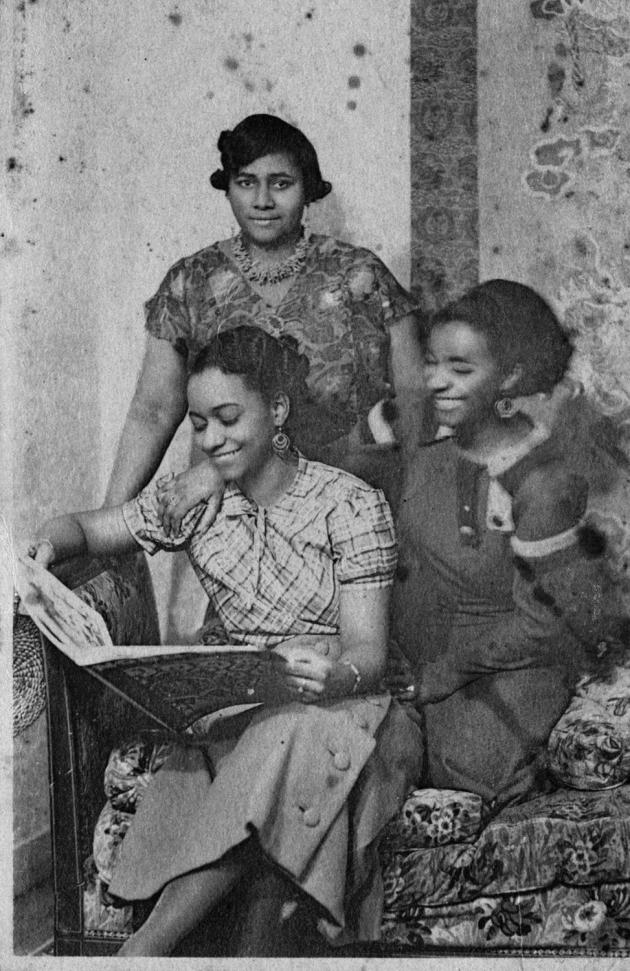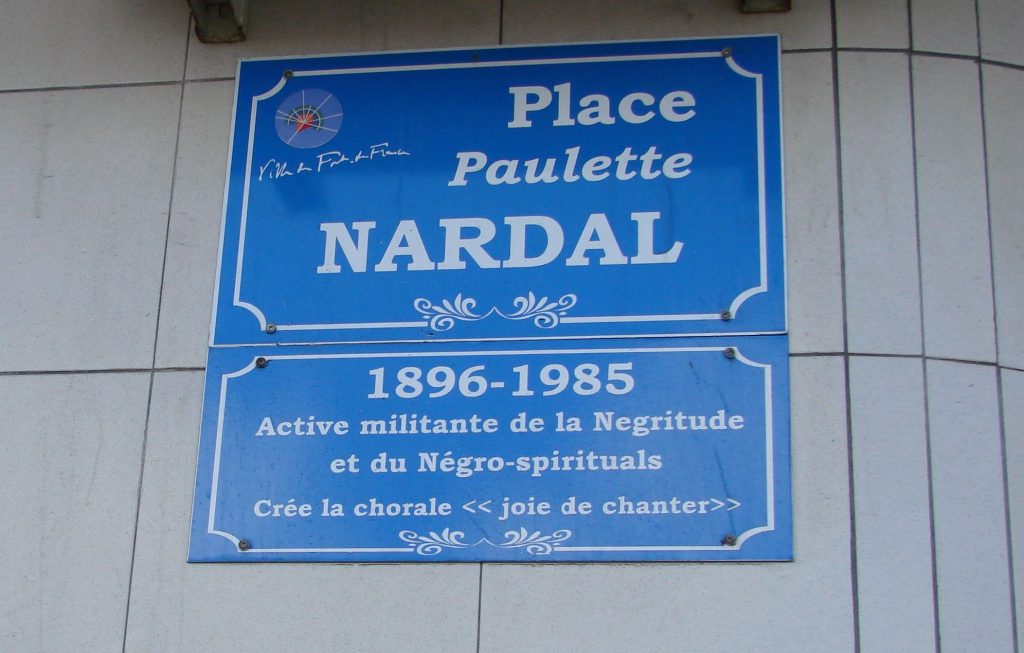

This square is named after Paulette Nardal (1896-1985), a writer, journalist, poet and activist from Martinique. She was the eldest of seven sisters, in the order Paule, known as Paulette, Emilie, Alice, Jane, Lucy, Cécyl and Andrée. Their father, Paul Nardal, grandson of a freed slave, was the island’s first black engineer. Their mother, Louise Achille, was a mulatto schoolteacher.
In 1920, Paulette arrived in Paris to study English at the Sorbonne University. She became the first black woman to study at this French institution. Every Sunday, she and her sisters Jane and Andrée hosted a literary salon in their Clamart apartment, where they discussed the black question. Césaire, Senghor, Damas and a host of other prominent figures would attend, enabling them to lay the groundwork for the theory of Négritude, a cultural, political and literary movement that emerged in Paris in the 1930s.
In 1931, along with Haitian writer Léo Sajous and Guyanese writer René Maran, Paulette and Jane co-founded La Revue du Monde Noir, a bilingual French-English journal that served as a platform for black intellectuals and inspired intersectional feminism.
The Nardal sisters, and Paulette and Jeanne in particular, were key figures in the intellectual and cultural Négritude movement in Martinique and France. They played a key role in the recognition and valorization of black culture and identity, and in the fight against racism and social injustice. But like many women, their ideas and contributions have been overshadowed or attributed to men.